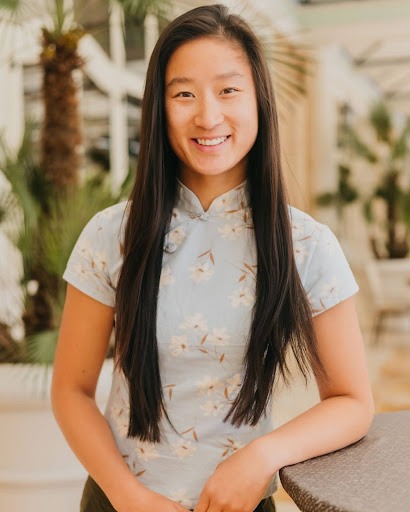
Joye Sumner Joye Sumner
Taylor Strelevitz • October 15, 2024
The Forum has been hosting Culture Shift since 2018 (with a brief hiatus during COVID.) The program has grown and evolved over the years but the premise has remained the same: We need more opportunities to meet new people and talk about difficult things.
We just launched our new season last month and one of our speakers and biggest supporters Joye Sumner talked with us about her experience as a Shifter. If you missed her talk titled "Adoption Shouldn't Be An Option" on Sept. 4, you can also read it below!

Joye Sumner Joye Sumner
How did you become a Shifter? What draws you to the program?
I saw Culture Shift on Facebook events in October 2023 and thought it sounded like a thought-provoking time that would include engaging with new people in the Anchorage community. I had moved back in July and wanted to participate in the local activities more than I had before. I was intrigued by the topics being highlighted like education system reform and sobriety and wanted to see what people considered radical ideas! What continues to draw me to the program is hearing what people care about and their hot takes.
What's it like being on the Culture Shift Community Advisory Board?
It’s been really fun to be on the Community Advisory Board because I get to hear other Board members' perspectives on the potential upcoming topics while sharing my own. I really enjoy the dialogue from peers on concepts even before they become selected.
Other than your own, what's been your favorite Culture Shift talk? Why?
So far, my favorite talk has been “Culture is the Key to Sobriety.” This was my first Culture Shift event, so it made a big imprint on my memory from that alone, but the topic also because it presented another angle for achieving and maintaining sobriety. Most impressively, the speaker was doing so in a cider house. Both my parents have over 35 years of sobriety, have been sober my whole life, and I grew up sitting in AA meetings before I’d ever tasted a sip of alcohol. However I enjoyed hearing other holistic ways through tapping into culture that some might use to meet their sobriety goals. Plus, it seems now more than ever people are open and proud about being sober or sober-curious, and I sympathize with how challenging it is to pull off living in Anchorage.
I also loved the “Knowledge About Your Health Doesn’t Matter” because off the bat, I was curious about the title. It made me think how I probably didn’t agree, but still wanted to hear the talk. Then the speaker delivered a super personable talk that was both funny and relatable where clearly the title was a hook, but my takeaway was that sometimes you have to learn the hard way. For example, knowing something isn’t good for you isn’t enough of a deterrent and sometimes you just have to go through it. This underlying message resonated with how I am at times and their strategy of titling heavily influenced how I wanted to title my own talk.
What are you looking forward to in the coming season of Culture Shift?
I look forward to meeting more people, hearing more radical ideas, and drawing connections between them. I appreciate the exercise of building thoughtful questions and being challenged to artfully tie two seemingly unrelated topics together, and I know this next season of Culture Shift will give many opportunities to do so!
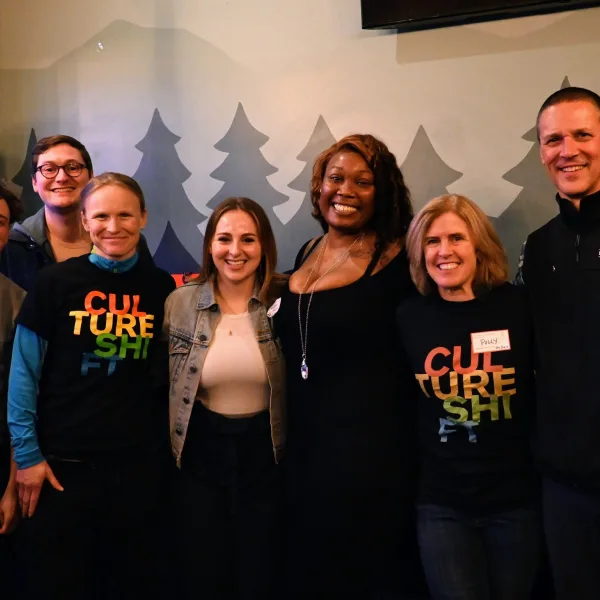
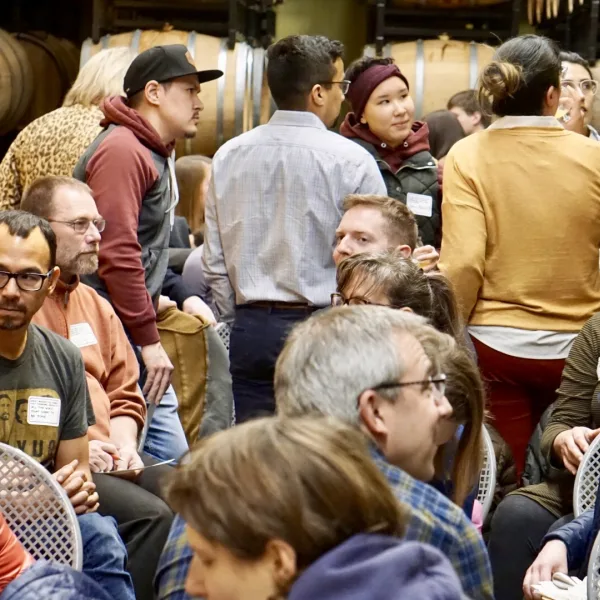
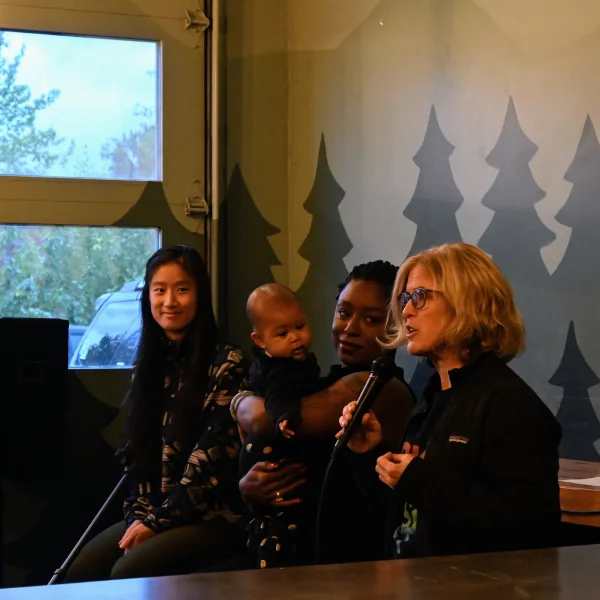
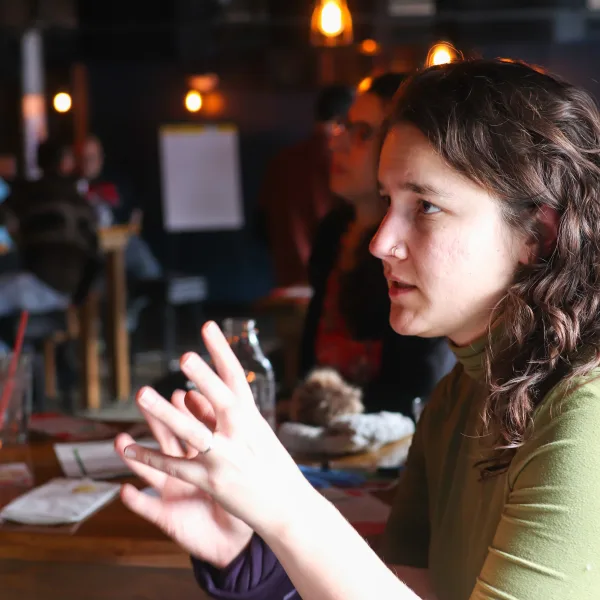
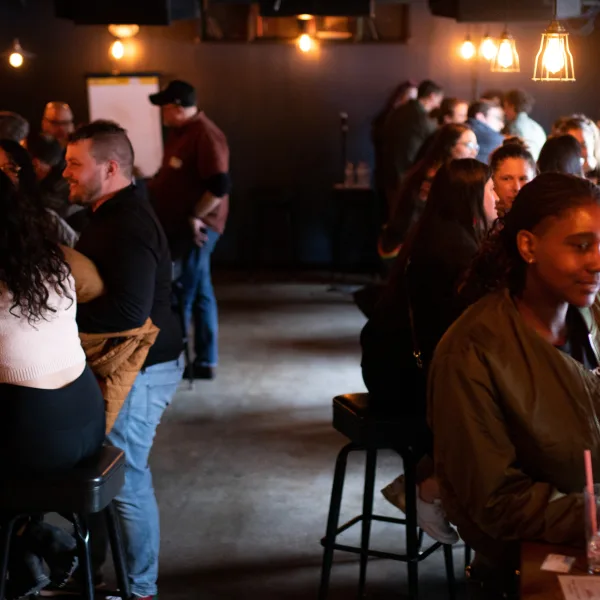
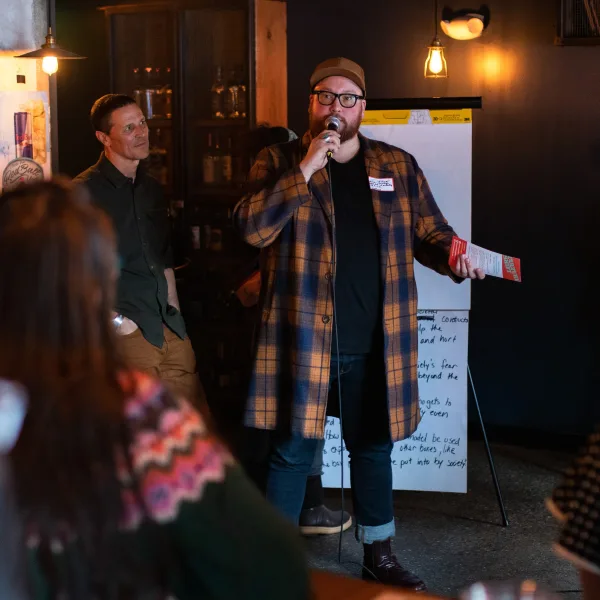
Bonus: Read Joye's Sept. 4 Culture Shift talk Adoption Shouldn't Be An Option here:
For as long as I can remember, I’ve known I was adopted. My parents were very forthcoming and I grew up as aware I could be, and I know I’m lucky for that. People asked my parents if they were going to tell me, but it would be quite obvious given they are white and I am Asian. Being adopted was a simple fact of my life, quite normal in my mind, and left no lingering impacts, or so I thought. Even in the present day, since moving away and moving back to Alaska, I hesitate to share my adoptee identity because it seems to invite in invasive questions, unsolicited opinions like “oh that’s great!” random private details like “oh my X family member is adopted too!” or a subconscious thought that it somehow dilutes my Asian identity or makes me “make sense” to the other party. Most of all, I don’t like sharing that piece of myself if I don’t have time to share what adoption truly means to me and my thoughts on the experience. Many times there is not time for that, but luckily tonight I have approximately 10 minutes.
My name is Joye, and I am a transracial, international adoptee from China to the US. My orphanage name was Jingxia, which my parents kept as a middle name. I may never know what, if any, name my birth family gave me. What I do know now, is without understanding why at the time, I kept my middle name to myself, telling no one, because kids learn early that being different isn’t always easy. It wasn’t until grad school in Washington and living outside my family circle that I began understanding, experiencing and exploring what Asian identity meant to me and what impacts adoption had. In Anchorage, most knew I was adopted through school events, whereas in Washington I was a Chinese woman who no one knew to be adopted. It was during this time that I experienced what many adult adoptees call “coming out of the fog”. While at grad school and the year following, which was Covid, I connected with the large virtual community of adult adoptees- many Asian, but others that included various race international, and domestic adoptees. I was introduced to many radical perspectives, the most profound being a Black adoptee saying they struggle with recognizing slavery as ended when white people can still buy black bodies for a set price in a contract that cannot be reversed.
I only represent myself, an Asian, transracial, international adoptee, in this talk. But the ideas I’m sharing represent far more than just my own. The thing about adoption is it is a unique topic that I generally find the political right and left supports. It’s one of the few traumas which the survivor is expected to be grateful for. Adoption always involves loss, but there is very little understanding and support. More recently the idea of C-PTSD is being explored in psychology, pre verbal traumas are remembered by the body, and kids aren’t a blank slate, but unsurprisingly revealing the dark side of adoption is not a favored or funded area of study. We know babies bond and know their mother before they’re born and we know animals have negative consequences when removed from their litter prematurely. What also know adoptees are 4x more likely to commit or attempt suicide and struggle with substance abuse. The transacted persons are up against the multi billion dollar adoption industry, which preys on marginalized families. What I’ve come to see is adoptees arise from a result of poverty and/or policy. The US baby scoop era, one child policy, war orphans, and Indian/native child displacement rates are just a few examples. The modern history of adoption traces back to the aboriginals in Australia, with the white peoples trying to socialize and colonize the indigenous people by taking their children in, and we’ve seen that strategy many times since.
Another issue with adoption is there is almost always a power dynamic since one party is assigned, rather than consenting, and is inherently a minor. The thing is, even when older children are involved and they “choose,” what choice do they really have? To stay in unstable housing be it an orphanage, foster home, or whatever halfway housing it is? Adoptees and humans in general are resilient and will do what they need to survive. However, my stance is that adoption shouldn’t be an option. Or at least an objectively favored and uninformed option.
Another of the many challenges is that, systemically, there is no incentive to end adoption. Many of us understand the challenges of living in a capitalistic society. We often talk about sustainable or ethical sourcing, but many adoptees are not. The industry is predatory, both domestic and internationally. Riddled with churches targeting pregnant women saying they have options, persuasion of mothers and families it’s for the child’s best to go to a better (wealthier) family, or institutions where families are told they will board and educate the child for free but in fact adopt them out. On the flip side, the buyer side is given a narrative that these families HAD to give their kids up without coercion. This is especially prevalent Internationally because the path is more muddied. However, data shows there are increased instances of kidnapping and other unconsensual means of acquiring supply of kids who are essentially trafficked in the name of adoption. However, coupled with reducing adoptee count are many left leaning efforts like improved education (on infant/minor separation consequences, maternal struggles post separation, the value of contraceptive use and more) and increasing the reduction of stigmatization of single mothers, communal living, being disabled, or being female. The fact is there are more hopeful adoptive parents than there are kids in need, and the demand calls for supply. An ideal society is one that supports its community members and in turn does not result in adoptees. A person with their basic needs met does not want to relinquish their family member.
———
I know this information, science, and readily available first hand stories from adult adoptees was not accessible back in the 90s when my parents went through the process. Marketing by agencies that adoption was positive and objectively good was the bulk of what was out there at the time. Presently, though, I feel it may be the easiest time to be outspoken in all of history due to social media, forums like this and other avenues to speak up rather than clam up. The goodness of adoption is being shattered and generations of adoptees have been growing up and becoming advocates, professionals, and scientists that are committed to sharing facts and experiences. They are set on challenging the almost universal sentiment that adoption is good. Adoptees whose origins are from all continents (except Antarctica in my experience), are unified in making this common knowledge. The challenge is people have access to more voices and first hand experiences and still don’t want to hear it. Those with the buying power also don’t want their vision shattered. I don’t expect adoption to be a topic on all peoples mind in the slightest. In fact most people share they haven’t even thought of it as negative or a human rights issue. I really only expect people to think about adoption critically if they are actively promoting it in a positive light, or if they are considering partaking in the transaction themselves. That said, I appreciate each one of you for hearing out this topic tonight. Furthermore, I encourage you all to seek out adoptee voices on blogs or other social media communities, especially if you’re considering, which might challenge your current perspectives, but also if you’re not- we need allies too. Most people who hear me out become aware of how tragic adoption really is, but there are many who write me and others off as ungrateful or angry adoptees.
Another facet of adoption includes the word grateful. For many adoptees, this is a triggering word. Circling back to adoption being one of the only traumas where you are expected to be happy about it. I’m expected by society to be grateful when in fact I have struggled passively and actively, despite having possibly one of the best cases of parents. I was raised by people who leaned left and most of all who let me be whoever I wanted to become. They had no predetermined path or expectations for me, although I think I was intended to loosely fill some sort of void- a need to one to experience parenthood. However, I know some adoptees get placed with families and parents who treat them like second class citizens, whose APs don’t even respect their country of origin, who face deathly abuse, and even some who are rehomed. I’d argue the early 2000s and celebrities made transracial adoption very mainstream and lots of white saviorism was involved. As mentioned, I had one of the best cases I know of, but still when I was adopted, any hopes of easily locating my original family, access to my birth country, culture, cultural identity and language were lost. Furthermore, in the case of many international adoptions, there is a one time evaluation of parent fitness and no subsequent follow ups- the adoption is finalized and birth country citizenship, name, everything is lost. We know all people came from somewhere, but in adoption, that lineage is twisted at best, totally lost at worst. I believe the level of damage such as identity, sense of belonging and other developmental issues gets exponentially higher as the type of adoption is intersectional (domestic vs international & same race vs transracial), but it is not the oppression Olympics and at the core adoption is a rotten, profitable solution for what could be a temporary issue.”
The Alaska Humanities Forum is a non-profit, non-partisan organization that designs and facilitates experiences to bridge distance and difference – programming that shares and preserves the stories of people and places across our vast state, and explores what it means to be Alaskan.
November 13, 2025 • MoHagani Magnetek & Polly Carr
November 12, 2025 • Becky Strub
November 10, 2025 • Jim LaBelle, Sr. & Amanda Dale